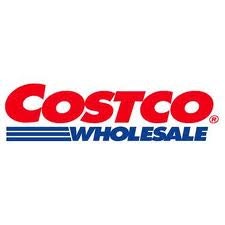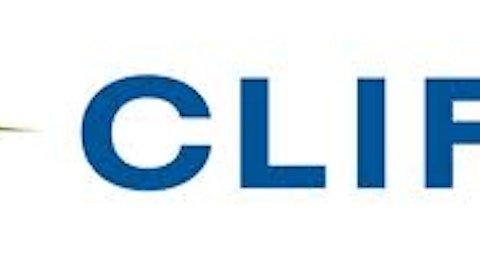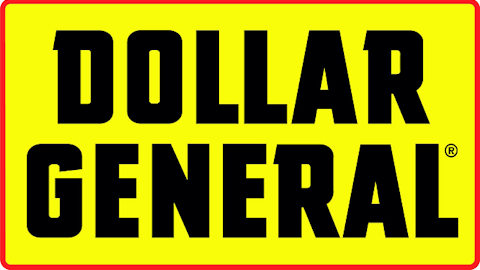In a scenario where retailers are finding it difficult to hold on to their revenues, Costco Wholesale Corporation (NASDAQ:COST) has shown an improvement of 7.8% in its sales. The company’s profit improved an impressive 18.9% compared to last year to $459 million. Let’s dig deeper into the company’s success mantra.
Costco Wholesale Corporation (NASDAQ:COST)’s sales from stores open for at least a year increased 5% compared to the same period last year. This is very impressive as other retail giants like Wal-Mart Stores, Inc. (NYSE:WMT) and Target Corporation (NYSE:TGT) reported negative comparable store sales. Competitive pricing and high gasoline prices drew customers towards Costco’s warehouses in the previous quarter.
Apart from same store sales growth, the company opened five new stores during the last quarter, with nine more stores planned for the current quarter. Costco Wholesale Corporation (NASDAQ:COST)’s store count is currently at 627 and it is going strong with its expansion plans, both domestically as well as internationally.
Further, half of Costco Wholesale Corporation (NASDAQ:COST)’s revenue, which is about $90 billion, comes from its overseas operations, appreciably more than Wal-Mart Stores, Inc. (NYSE:WMT). The company is in an early stage of its global expansion process, so investors can expect a lot of potential from its overseas operations. Asian and Australian markets seem to be booming, which is the reason that the company is planning to open most of its warehouses in these two continents. The Asian market is price sensitive with most of the consumers buying in bulk.
Almost all retailers work on very thin margins, so to increase profitability, they need to keep a check on their costs and look in for ways to reduce them. The reduction of 2 basis points in expenses is commendable bearing in mind the size of Costco Wholesale Corporation (NASDAQ:COST) and its ongoing IT modernization costs. Its operating income for Q3 surged from $623 million to $722 million this year.These efforts to reduce cost will definitely benefit the company’s bottom line.
In the last two quarters, the company has added over 1.6 million people with more than 90% North American members renewing their membership. The renewal of membership is a good enough fact to point out that the company has a loyal customer base. In the third quarter, membership fees climbed 12%, which helped the overall earnings to rise to $1.04 this year.
Wal-Mart Stores, Inc. (NYSE:WMT) and Target Corporation (NYSE:TGT) rely on price-conscious customers and attract them by offering cheap prices, but Costco’s upfront collection of membership fees has been a major reason for its success. The upfront collection of fees gives the company two advantages; firstly, it books almost all of its profits nearly a year in advance and secondly, the upfront fee binds customers to shop from Costco, even if it does not offer the best deal compared to its peers. The growing membership base indirectly guarantees that Costco will be able to grow its revenue in the future as well, as long as its customer base is increasing.
Amid competition
Wal-Mart Stores, Inc. (NYSE:WMT) is an effective retailer generating more than 4.5 times the sales of Costco per year. At this stage, a mature company such as Wal-Mart can’t be expected to grow at a great pace and has to keep reinventing itself. As Wal-Mart Stores, Inc. (NYSE:WMT) focuses on price conscious customers, it maintains an everyday low-price business model.
The company, too, is looking to cut down on costs to sustain in the price sensitive market as it targets mainly the low income group of shoppers. Wal-Mart is reducing its workforce and adding more stores by working on self-checkout lines by making its stores easy to navigate with a standardized floor layout plan. Its non-sales selling approach is being appreciated in this regard as people now don’t have to face pushy sales people. This approach of Wal-Mart does not only reduce cost, but gives customers a better experience while shopping.
Target had a rough start to 2013 with its sales and earnings both being lower than expected in the recent quarter. The next few quarters are also expected to be flat. However, their retailer’s loyalty-card program is delivering good results and should be good for future sales to a great extent.
Target is a recognized brand and sells high-end products at bargain prices along with a wide variety of unique products to offer. Alike Costco, Target’s REDcards will also be able to bring buyers to them by offering a 5% discount on purchases made from its stores or website. Further, to attract consumers and conclude their product search with potential purchases, Target presented its customers with exclusive products and a distinctive boutique experience through “The Shops,” its online site.
Target’s entry into grocery should boost its sales and increase footfall, which might eventually end up in customers purchasing goods exclusively from it without bothering about trying other places. Target’s sales have already risen 10% since it commenced selling groceries, which points out towards the potential going forward clearly.
Final words
All retailers seem to have something more to offer than the others to attract customers and retain them. Currently, the success of Costco’s model comes from its upfront fee collection, which almost confirms its profits a year in advance. Target has always been innovative and that has been the reason behind its success. Wal-Mart’s price sensitive customer base and gigantically diversified global base provides it with a great cushion of revenue.
In my opinion, all of these retailers are good long-term investments in the current scenario.
The article Hold On to These Stocks for Assured Growth originally appeared on Fool.com and is written by tarun bachhawat.
tarun bachhawat has no position in any stocks mentioned. The Motley Fool recommends Costco Wholesale (NASDAQ:COST). The Motley Fool owns shares of Costco Wholesale. tarun is a member of The Motley Fool Blog Network — entries represent the personal opinion of the blogger and are not formally edited.
Copyright © 1995 – 2013 The Motley Fool, LLC. All rights reserved. The Motley Fool has a disclosure policy.





